Updated: Hawick sports commentator Bill McLaren was Scotland’s 16th man for 1990 grand slam victory, claims England rugby hero Rob Andrew
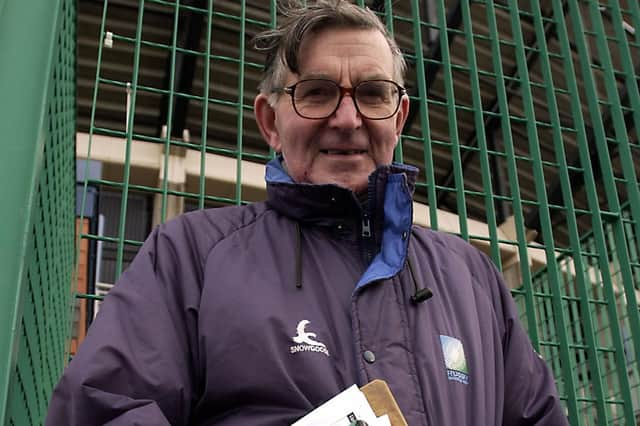

A try by Hawick’s Tony Stanger and three penalties kicked by Melrose and Border Reivers fly-half Craig Chalmers won the game 13-7 for the Scots at Edinburgh’s Murrayfield Stadium on Saturday, March 17, that year – along with the Calcutta Cup, triple crown and grand slam – but the seeds of victory might well have been sown in Peebles the day before by a 16th man, namely late Hawick sports commentator Bill McLaren, reckons opposition stand-off Rob Andrew.
In The Grudge, a film about the match produced and directed by Tom Boswell and narrated by actor Robert Carlyle, the 59-year-old, a team-mate of late Melrose lock Doddie Weir at Newcastle Falcons, claims McLaren helped lull the visitors into a false sense of security, either unwittingly with honest praise or, flying in the face of the impartiality and sportsmanship he was famous for, wilfully with mind games – or possibly a bit of both.
Advertisement
Hide AdAdvertisement
Hide AdIt was the first time Scotland and England had contested a grand slam decider and the visitors, with Geoff Cooke as head coach and Will Carling as captain, were emphatic favourites, and Andrew credits McLaren with adding to the overconfidence and complacency that accompanied that expectation of victory.
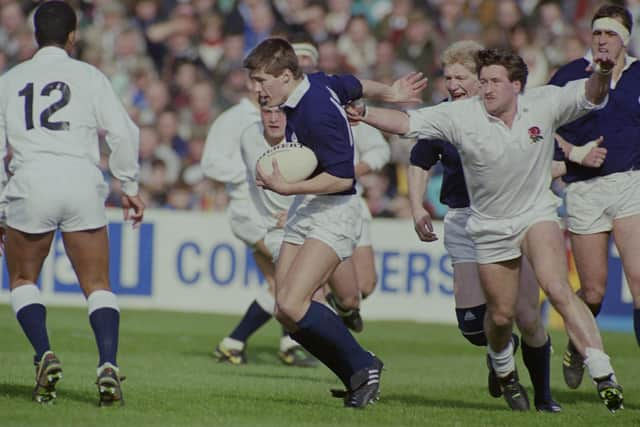

The broadcaster, a BBC rugby commentator from 1953 until 2002, visited an England training session in the Borders the day before the game as part of his pre-match preparations to familiarise himself with their players and tactics and Andrew recalls: “I don’t know whether we were lulled a little bit because we were full of confidence.
“We went to Peebles to train and the legendary Bill McLaren, who was commentating on the game, would always come and watch people train.
“We had this run-through on the Friday morning and we trained really well, nobody dropped the ball, we did it all at 100mph, and Bill said ‘you guys look amazing. That was the best training session I’ve ever seen. You’re going to be fantastic tomorrow. Scotland haven’t got a chance’.
Advertisement
Hide AdAdvertisement
Hide Ad“When you look back on it, maybe it was a little bit of kidology and maybe that did catch us out a little bit.”
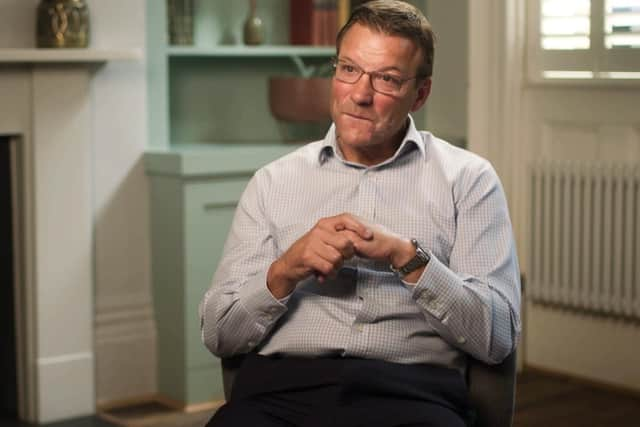

Kelso’s John Jeffrey, one of several Borderers in head coach Ian McGeechan’s matchday squad, credits the bolstering of the ranks of their usual 16th man, their crowd, by football fans frustrated at the sport’s home internationals having been scrapped the year before because of hooliganism issues with adding to the atmosphere of the occasion, to this day Scotland’s last grand slam success.
“They cancelled the Scotland-versus-England football matches, so all of a sudden we were getting people at Murrayfield supporting the rugby team who had never supported it in their whole life, but this was their one chance in the year to say ‘we’re Scottish and against the English’,” recalls the 63-year-old, currently chairman of the Scottish Rugby Union’s board.
“You knew this was a game way beyond any we’d ever played. This was on a totally, totally different level.”
Advertisement
Hide AdAdvertisement
Hide AdHe reveals that he feared the crowd there on the day might not have been so supportive of him personally had they been aware of his hitherto-secret history of playing for England against Scotland, however.
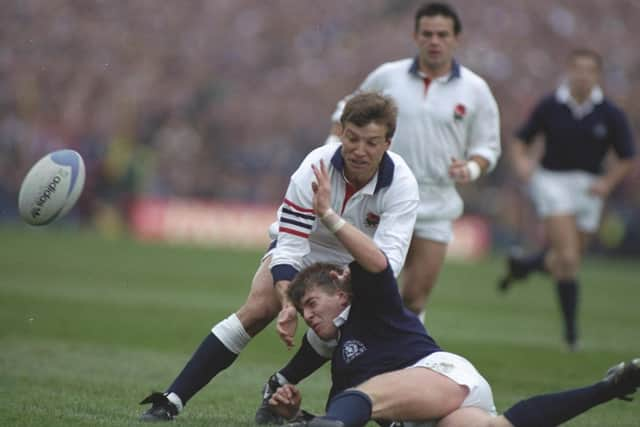

“There was that wee bit of extra edge for me personally when I played against England because I actually went to university in Newcastle and when I was there I got selected for the English universities team, so I would wake up on the morning of a Scotland-England game petrified that the papers had a picture of me wearing the England rose,” says Jeffrey, capped 40 times for his country between 1984 and 1991.
“I actually played for English universities against Scottish universities and I scored a try, but for some reason, journalists never ever picked that up. They never found out thankfully.”
Jeffrey also credits disgruntlement among his team-mates over England’s 9-6 victory at Murrayfield two years earlier with boosting their will to win in 1990, recounting: “There was bad feeling between the two teams from two years earlier. There’d been a carry-over at Murrayfield.
Advertisement
Hide AdAdvertisement
Hide Ad“It was just a dreadful game of rugby – it was just an awful game of rugby – and actually the two coaches had a go at each other afterwards.”
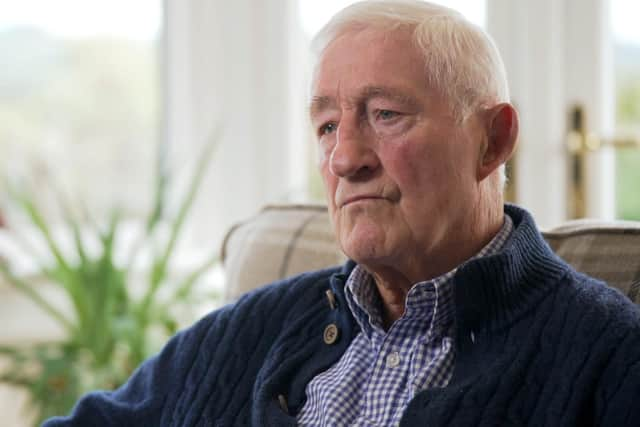

Scotland might have been considered rank outsiders by the rest of the world to win their third – and, to date, last – grand slam in 1990 but the players responsible for pulling off that feat had no such qualms about their quality, according to Chalmers.
“We were massive underdogs but we did believe we could do it,” insists the Galashiels-born 54-year-old.
“I looked around our dressing room and we had real quality players in there.”
Advertisement
Hide AdAdvertisement
Hide AdThe backing given to the Scottish team by a capacity crowd at Edinburgh’s Murrayfield Stadium also helped inspire his side to defy the odds and pull off an upset against the English, he says.
“The atmosphere at Murrayfield that day was amazing,” he recalls. “The atmosphere was electric for us. It was quite emotional.”
Stanger, 54, agrees, saying: “It was 33 years ago but I can remember very clearly what if felt like, and it felt like the difference between ‘we can do this today’ and ‘we’re going to do this’.”
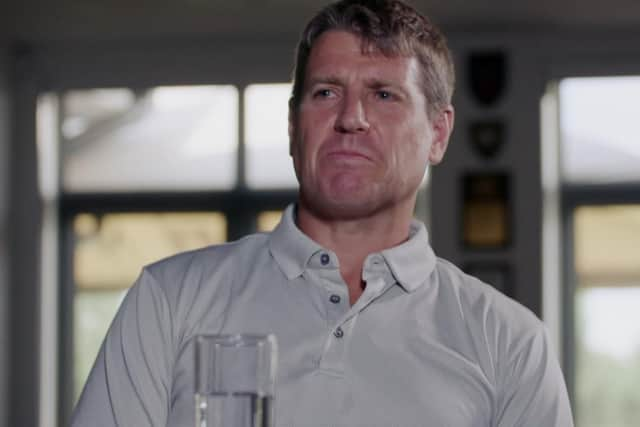

Melrose’s Jim Telfer, Scotland’s director of rugby in 1988 and an assistant to McGeechan in 1990, adds: “It was Bannockburn and Culloden rolled into one.
Advertisement
Hide AdAdvertisement
Hide Ad“The press hyped it up. You had Margaret Thatcher and the poll tax thrown in. There was no escaping it. Was it different to a normal Calcutta Cup? Oh, aye.”
The winning Scottish side, captained by David Sole, also featured Jedburgh’s Gary Armstrong, former Gala No 8 Derek White, Selkirk’s Iwan Tukalo and ex-Melrose flanker Finlay Calder, with Hawick’s Derek Turnbull as a replacement.
Also in the squad for the tournament were Weir, Melrose’s Craig Redpath and Graham Sheill, Selkirk’s Graham Marshall and Hawick’s Greig Oliver.
To set up their decider against England, they beat Ireland 13-10 away, White scoring two tries and Chalmers adding a conversion and a penalty; France 21-0 at home, Calder and Tukalo touching down, Chalmers converting both and kicking a penalty and Gavin Hastings adding a further penalty; and Wales 13-9 away, Damian Cronin scoring their only try and Chalmers adding three penalties.
Advertisement
Hide AdAdvertisement
Hide AdLining up against them were the likes of Jeremy Guscott, Rory Underwood, Brian Moore, Paul Ackford and Wade Dooley.
The 80-minute film, based on the 2010 book The Grudge: Two Nations, One Match, No Holds Barred by BBC Scotland journalist Tom English, can be seen now via catch-up or on the BT Sport app or website, btsport.com/films